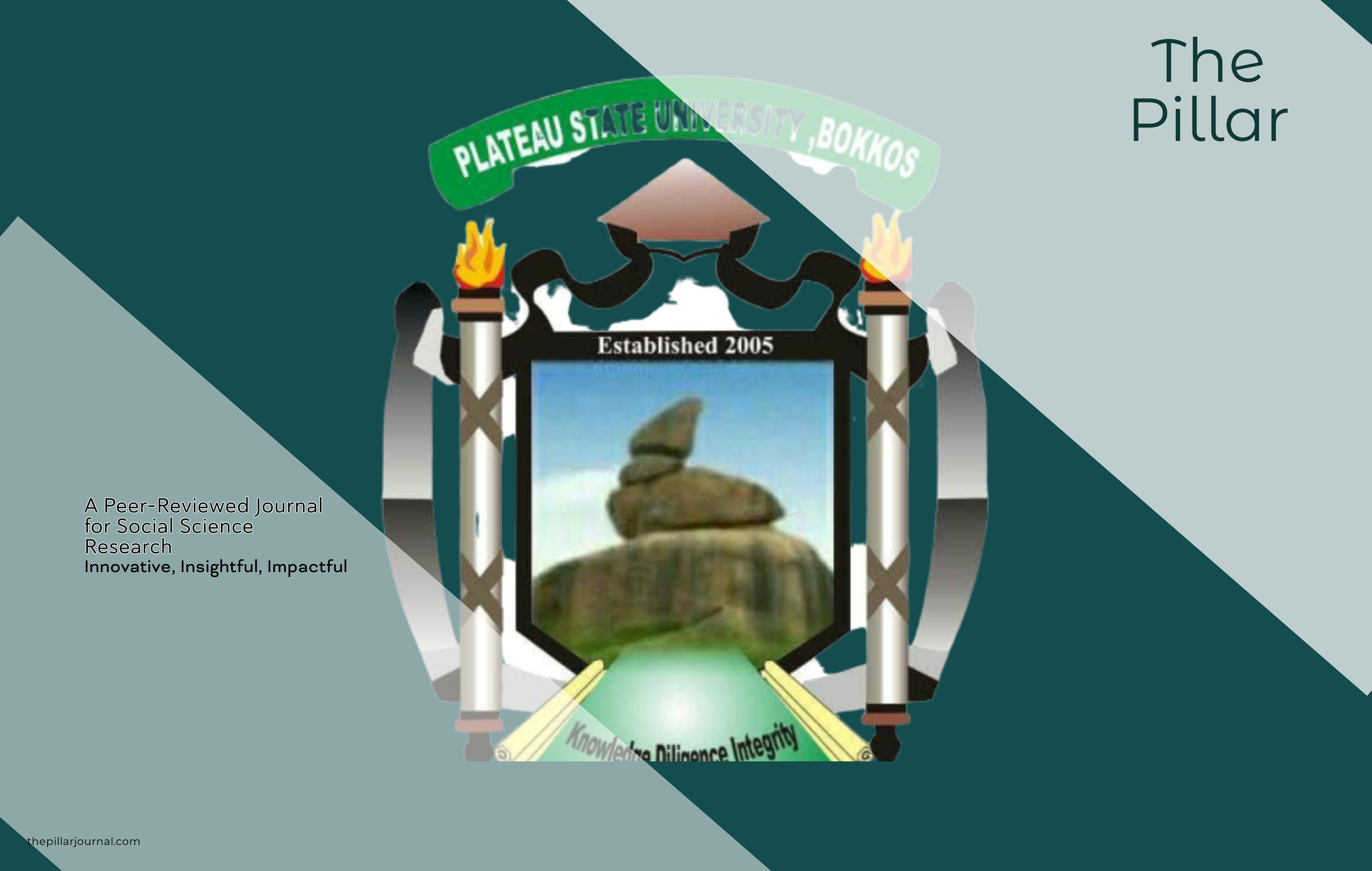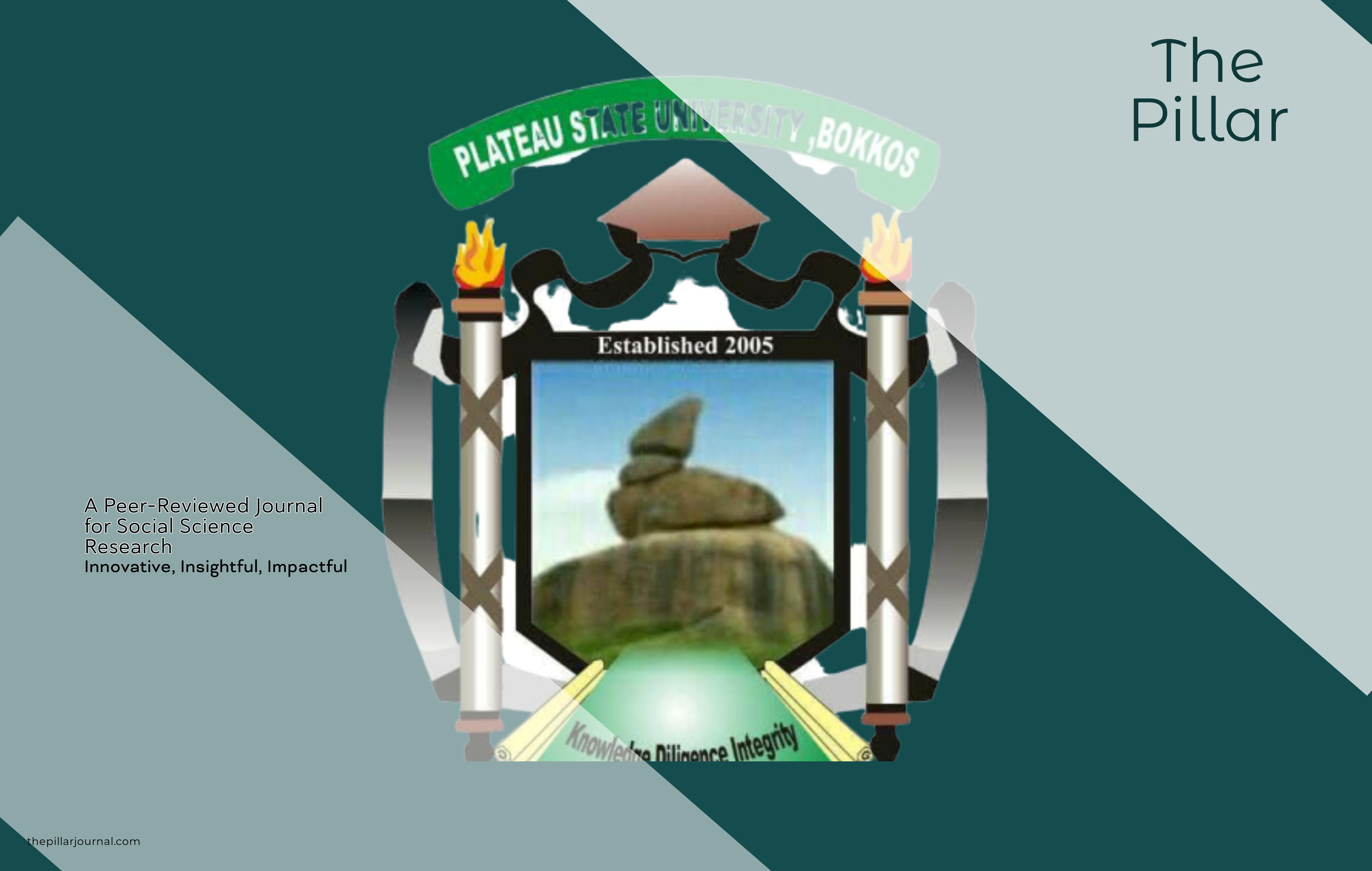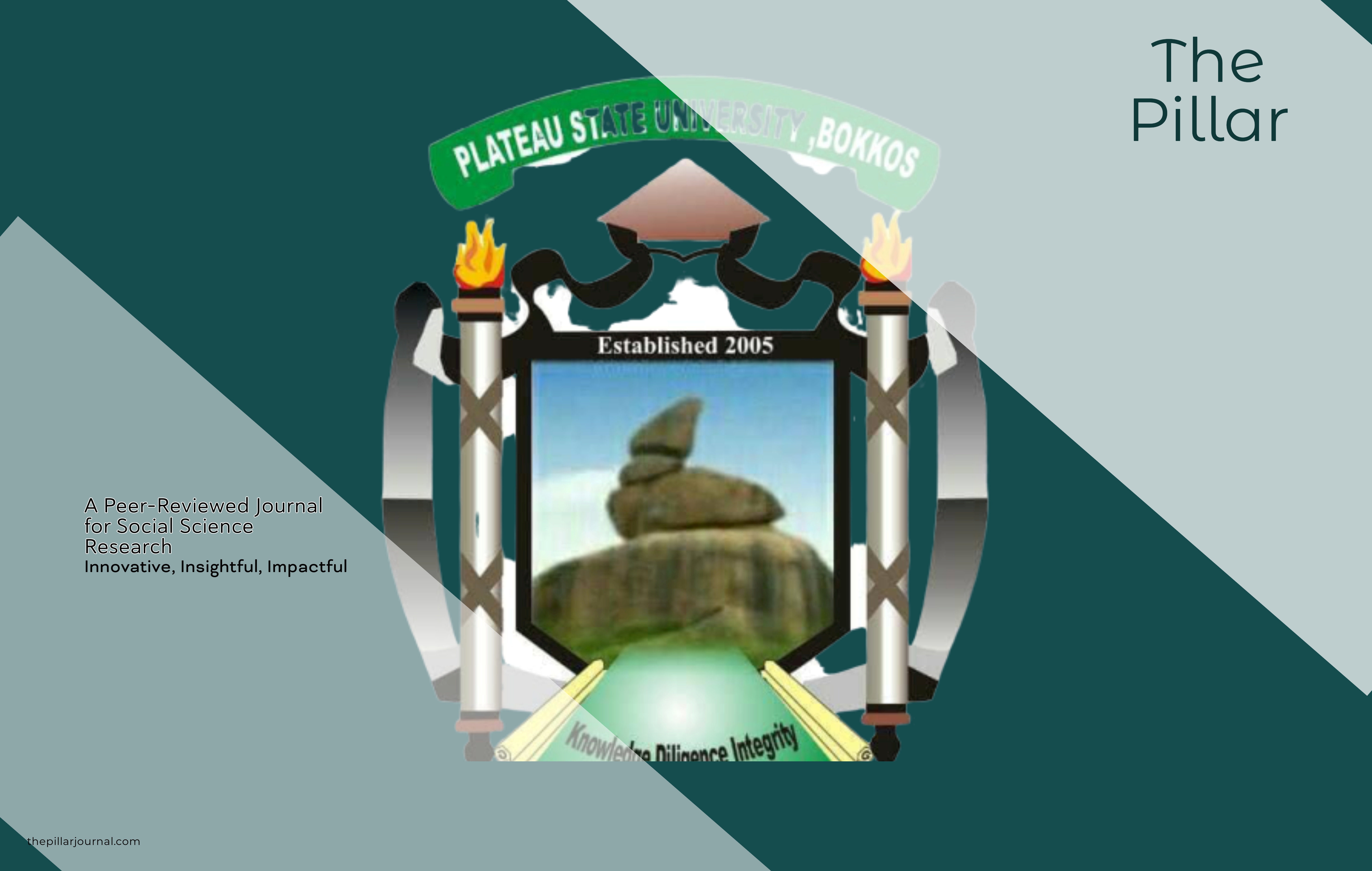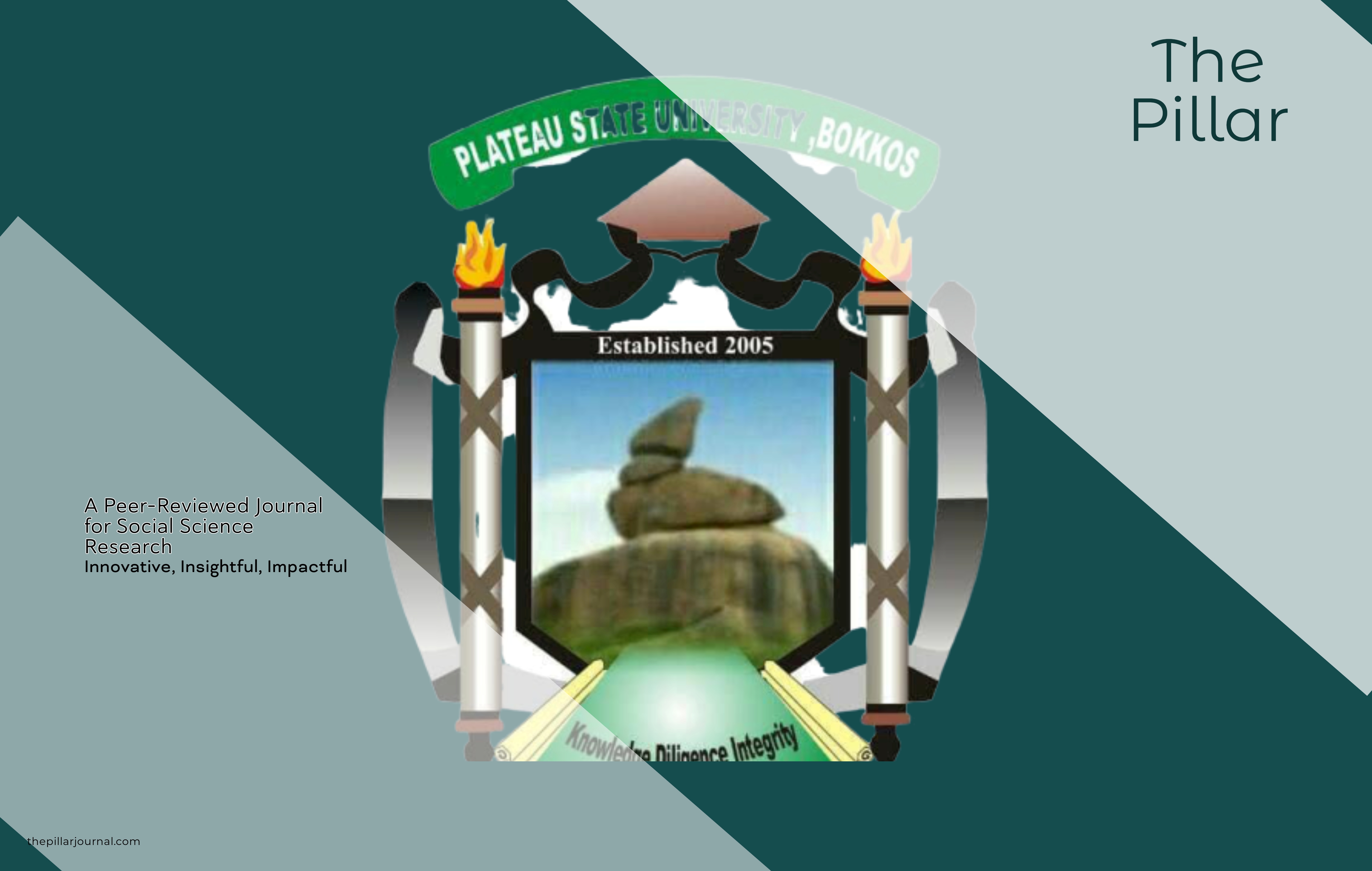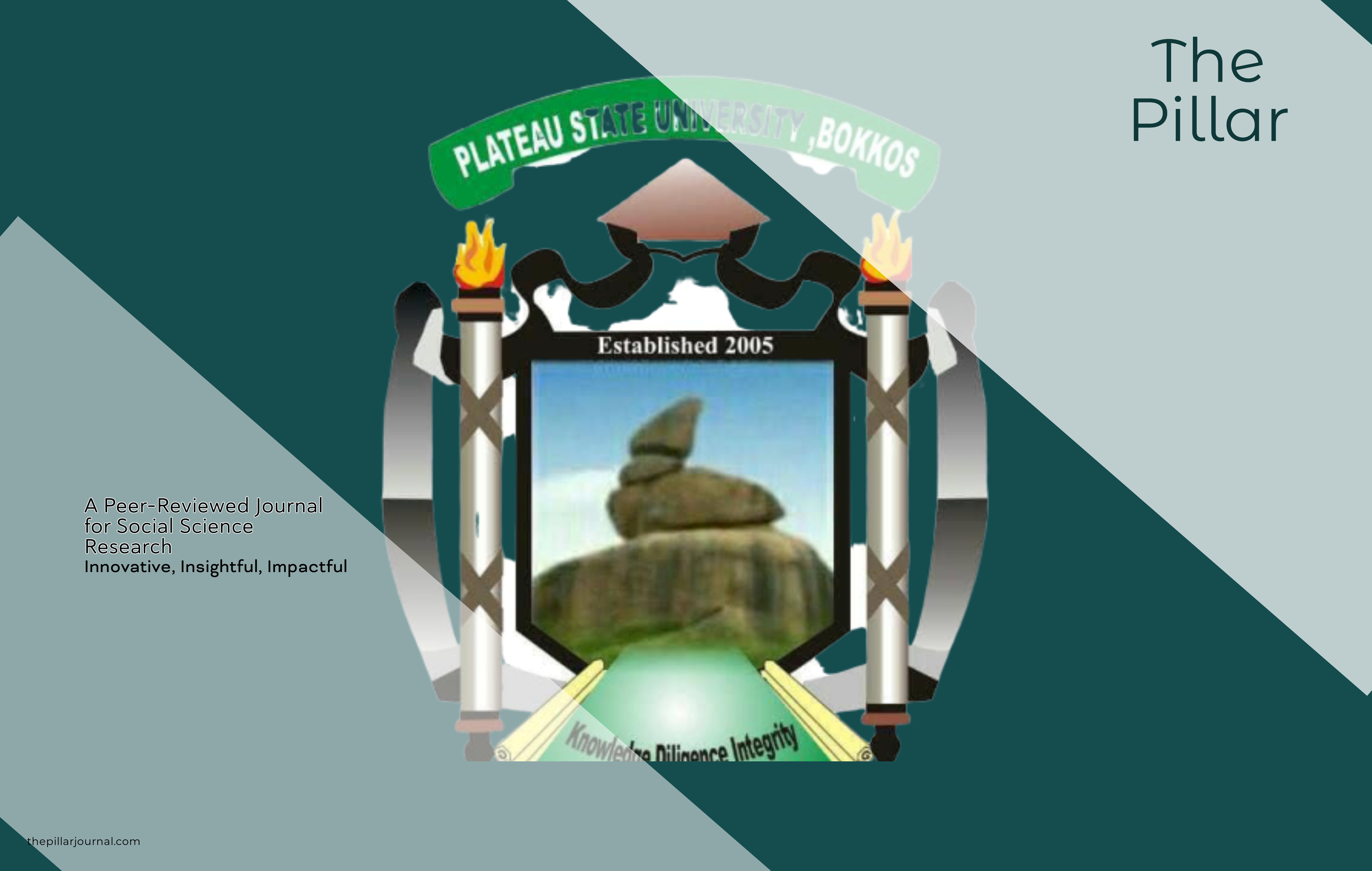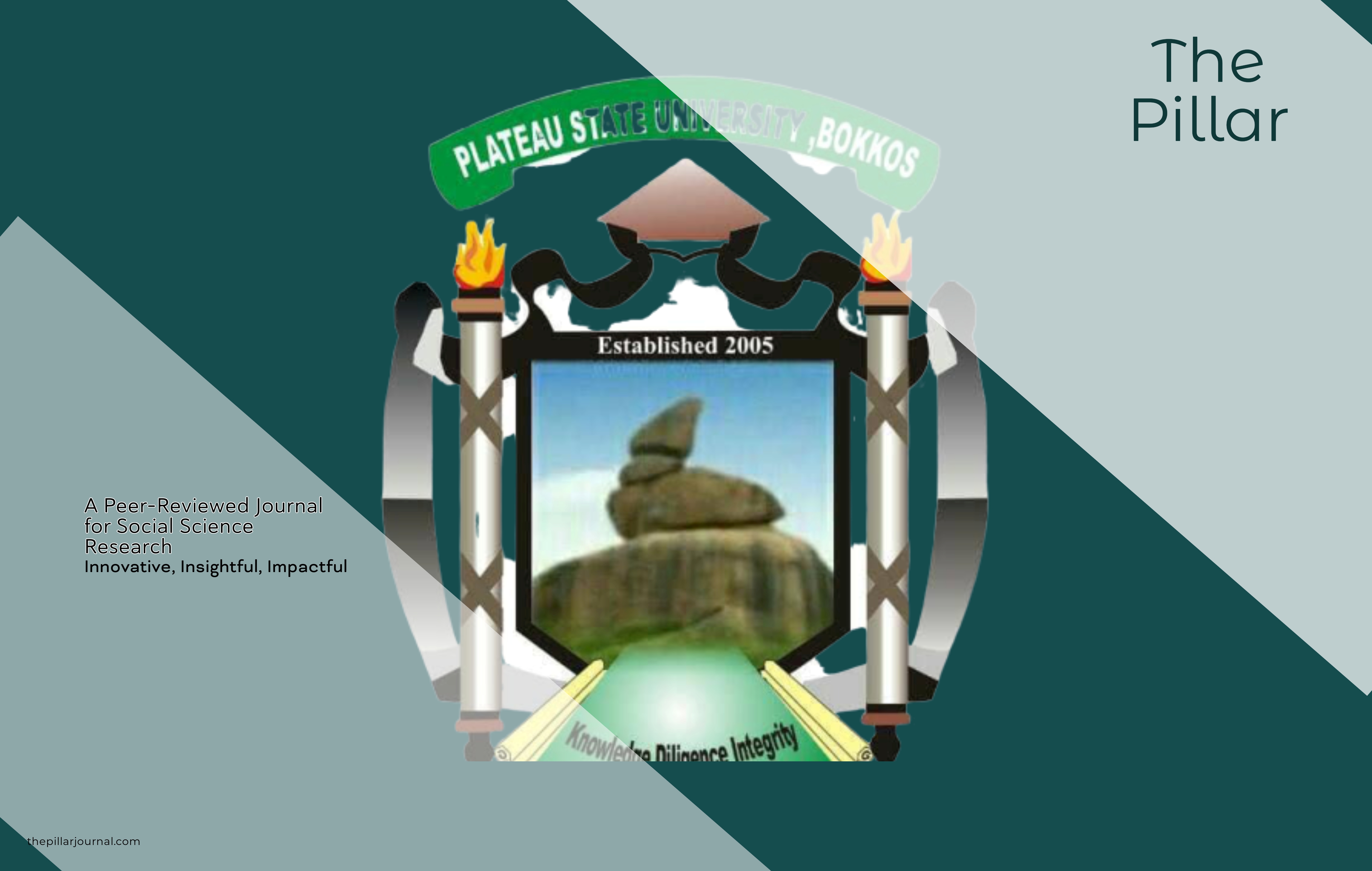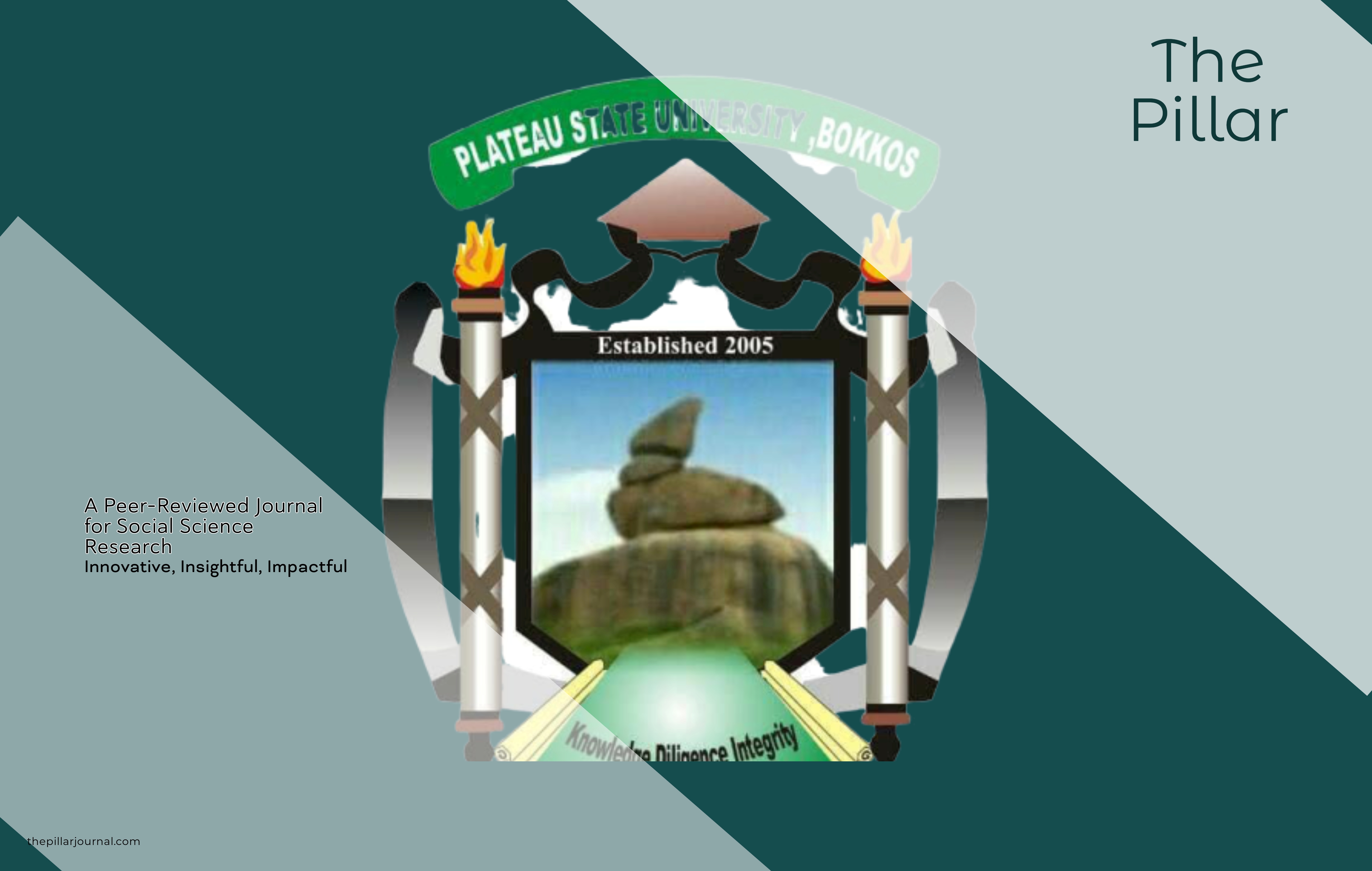About the Journal
The Pillar Journal of Social Sciences is a bi-annual publication of the Faculty of Social Sciences, Plateau State University, Bokkos, Plateau State, Nigeria. It is committed to pursuing academic excellence by providing a platform for publishing high-quality research papers after passing through a rigorous peer review process. Submissions from scholars across the field of social sciences, including Economics, Mass Communication, Political Science, Psychology, Sociology, Library and Information Science, and related disciplines to foster a comprehensive understanding of social phenomena are welcomed.
Current Issue

Published: 2025-05-12
Articles
-
IMPACT OF FEDERAL GOVERNMENT EXPENDITURE AND ECONOMIC GROWTH IN NIGERIA (1981-2022)
Zhattau , V. S., Ogba, L., Ogboru, I. (Author)1 - 23 -
INFLUENCE OF ALCOHOL ON SEXUAL EXPERIENCE AMONG WOMEN: A QUALITATIVE ANALYSIS
Dauda Akwai Saleh, Gloria Samuel Karuri, Zubairu Kwambo Dagona (Author)24 - 38 -
THE IMPACT OF FARMERS AND HERDERS CONFLICTS ON SOCIO-ECONOMIC ACTIVITIES IN BOKKOS LOCAL GOVERNMENT AREA COUNCIL OFPLATEAU STATE
Odo Christopher Uba, Monday Hassan Zitta (Author)39 - 65 -
INFLUENCE OF GENDER AND PERCEIVED SOCIAL SUPPORT ON PSYCHOLOGICAL WELL BEING OF THE WIDOWED IN NORTHERN PLATEAU STATE
Jonah Zumlong Damilep, Edward Mawun Makdet Dachalson (Author)66 - 81 -
DEPRESSION AS A PREDICTOR OF SUICIDE AND SUICIDAL IDEATION AMONG MEDICAL STUDENTS AT THE UNIVERSITY OF JOS, NIGERIA
Dabit, Joseph, Amabu Enoch, Margaget Kwarher, Opuene Linda Nanker, Ahinche Esther (Author)82 - 94 -
HONG KONG’S ACHIEVEMENT IN THE MEDICAL INDUSTRY- LESSONS FOR NIGERIA
DAWAM, SAMUEL NAANSUAN, YUSUF AHMED TIJANI (Author)95 - 106 -
The Effect of Part-time Employment on Micro, Small and Medium Scale Enterprises Development in Plateau State
Wushibba Bako, Atayi Vincent Abraham, Panshak Yohanna (Author)107 - 118 -
Implications of Limited Perspective in Property Market Investment Decision-Making: A Study of Plateau State, Nigeria
Dashol Ishaya Usman (Author)119 - 133 -
Exposure to Fake News and its Influence on Voters' Decision: A Study of the 2023 Nigeria's Presidential Elections
Adeyanju Apejoye (Author)134-154 -
EDITORIAL POLICY
For Authors
Manuscripts must be original and must not have been published or currently under review in other publications. Manuscripts must be composed in English (British or American), and the journal's citation format should adhere to the 7th edition of the American Psychological Association (APA) style. Submitted manuscripts will undergo an initial desk review and a plagiarism assessment. Subsequently, submissions approved during the desk review will be subjected to a blind peer review process to uphold rigorous academic standards and the journal's integrity. The overall word count of a manuscript must not surpass 6,000 words, encompassing graphs, tables, references, and appendices. Submitted papers must adhere to the 1.5 line spacing, 12-point font, and Times New Roman typeface formatting specifications. Published papers will possess Digital Object Identifiers (DOI) and be indexed in esteemed indexing services.
For Reviewers
We are profoundly dedicated to upholding integrity in the review process for manuscripts submitted to our journal. We prioritise the peer review process and the calibre of reviewers, which we feel must remain uncompromised. Reviewers are meticulously chosen based on their proficiency in pertinent subject areas and substantial contributions to those disciplines. The selection requirements encompass possessing a PhD, attaining a minimum rank of senior lecturer, and lacking any personal or institutional affiliation with the author of the work designated for review. If a reviewer has an undisclosed relationship with the author, they must decline the offer to evaluate the manuscript. Reviewers are required to maintain absolute confidentiality concerning the assigned manuscript, abstaining from disclosing its content to others or using it for personal gain. To maintain equity and efficacy, each reviewer may be allocated a maximum of two manuscripts per journal issue and is required to complete their evaluation within two weeks of receiving the assignment.


